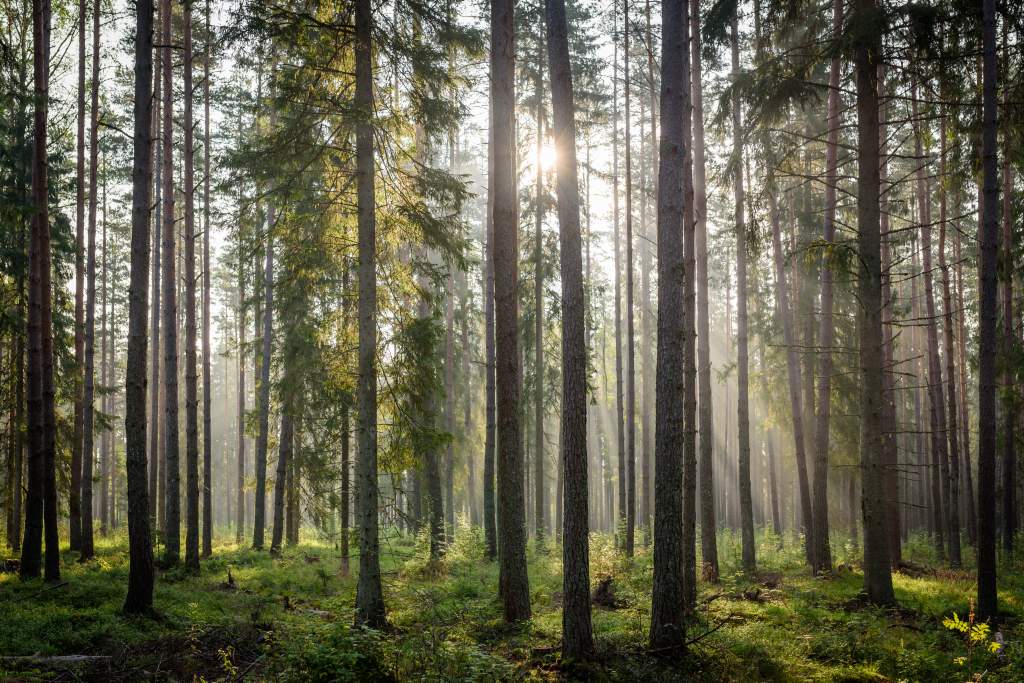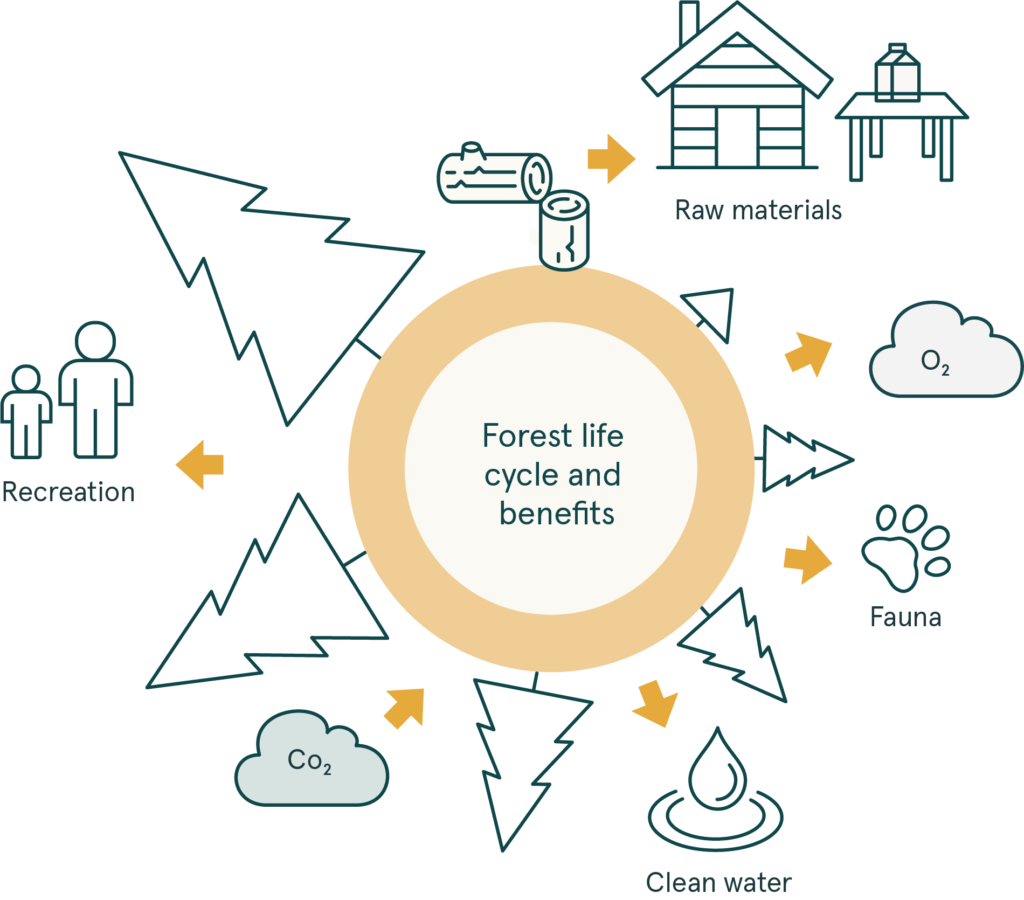Our material is forest-friendly
Elopak cartons consist of on average 75% paperboard. As our main raw material is derived from forests, we take responsible forest management seriously. Forests are naturally renewable since trees grow relatively quickly without human interference. However, forests are only renewable if they are managed responsibly.

Unfortunately, there are many examples of illegal logging occurring in rainforests and other natural forests. If trees are cut down without being replanted, or the area is used for another purpose, such as plantations, all the benefits from the forest will be lost. Elopak does not want to contribute to this deforestation of the planet.
FSC™-certified material
We source all paperboard from legal and acceptable sources in accordance with the standards of the Forest Stewardship Council™ (FSC™). This means that the wood fiber is verified not to come from wood harvested:
- in violation of traditional or civil rights
- in threatened high conservation value forest
- in forest being converted to plantations or for non-forest use
- from forests in which genetically modified trees are planted illegally
Verification through the supply chain in accordance to FSC Chain of Custody standards ensures that the final, labeled product is made with material sourced from FSC-certified forest and other controlled sources.
The lungs of the Earth
Trees play an important role in the carbon cycle. During their growth, trees absorb carbon dioxide (CO2) from the atmosphere and produce oxygen. The carbon cycle describes the process in which carbon atoms continually travel from the atmosphere to the Earth, and then back into the atmosphere.

Between 1990 and 2015, the world lost 129 million hectares of forest. The destruction and degradation of forests worldwide leads to an increase of the atmospheric CO2 concentration and is devastating to the climate and the planet. This must stop.